Cihan Geyik
AI Tools
5
min read
Apr 26, 2025
Discover the Top 10 Copy AI Alternatives & Competitors
The rise of artificial intelligence has revolutionized content creation, and tools like Copy.ai have become go-to resources for marketers, writers, and businesses seeking efficiency. AI writing assistants can dramatically speed up the generation of marketing copy, social media posts, blog outlines, and more.
However, as the AI landscape matures, it's clear that a single tool rarely fits every need. You might be looking for alternatives to Copy.ai because you require:
Higher or more consistent content quality.
Greater control over brand voice and customization.
Specialized features (e.g., advanced SEO optimization, predictive analytics).
Different pricing structures or more generous usage limits.
Better integration with your existing marketing stack or workflows.
Unique capabilities, like automating entire go-to-market strategies.
Fortunately, the market is brimming with innovative Copy.ai alternatives. Choosing the right one can significantly enhance your content quality, streamline processes, and ultimately drive better results. Based on our analysis and understanding of the AI content landscape, this guide explores 10 leading competitors, detailing their strengths, limitations, and ideal use cases to help you find the perfect fit for your content creation goals.
Top 10 Copy.ai Alternatives & Competitors
While Copy.ai provides a versatile platform, exploring these alternatives can unlock features and workflows better aligned with your specific objectives.
1. Empler AI
Best for: B2B Go-To-Market (GTM) teams needing to automate complex workflows that include content generation as part of a larger strategy.
Empler AI represents a different category – an Agentic Automation Platform tailored for Sales, Marketing, and CRM operations. While it can generate content (like E-E-A-T aligned blog posts from keywords using specialized agents), its core value lies in orchestrating multiple AI agents within automated workflows to tackle broader GTM tasks. This makes it a compelling alternative for teams where content creation is deeply integrated with processes like lead generation, data enrichment, competitor monitoring, or personalized outreach.
Key Features:
Agentic Workflows: Uses multiple AI agents (researchers, writers, analysts) coordinated to automate multi-step GTM processes.
GTM Use Case Library: Offers pre-built workflow templates for tasks like finding prospects based on real-time data, enriching CRM records (funding, tech stack), monitoring competitor activities, identifying website visitors, and leveraging sales triggers.
Deep Integrations: Connects natively with CRMs (HubSpot, Salesforce, Pipedrive), sales engagement tools (Apollo, Instantly), B2B databases, collaboration tools (Slack, Google Docs), and various LLMs (GPT, Claude, Gemini).
Data Tables: Structure data generated or processed by AI agents for easy analysis or transfer to other systems.
Multi-Agent Framework: Allows strategic planning and execution involving different AI skills to achieve complex outcomes, which can include highly targeted content creation.
Limitations:
Significantly more complex than standard AI writers, focused on workflow automation rather than just text generation.
Primarily designed for B2B GTM teams; less suitable for individual content creators or B2C marketing without a strong automation angle.
Requires understanding automation concepts to leverage its full potential.
It likely has a higher price point, reflecting its platform capabilities and target market.
Pricing: Typically involveThis typicallyor tiered pricing based on usage, features, and team size. Requires contactiFor specific details, contact sales or book a demo
2. Jasper
Best for: Marketing teams needing high-quality, brand-aligned content and versatile copywriting templates.
Jasper is a powerhouse in the AI writing arena, highly regarded for its ability to generate content that consistently reflects a specific brand voice. It offers an extensive library of templates tailored for marketing tasks – from ad copy f,meworks like AIDA and PAS to blog posts, emails, and website content. Jasper's "Brand Voice" feature allows you to upload style guides and company information, training the AI for more relevantto produced consistent output.
Key Features:
Brand Voice & Knowledge: Trains the AI on your specific brand guidelines, product details, and company facts for tailored content.
Extensive Template Library: Covers a wide range of marketing and sales copywriting needs.
Surfer SEO Integration: Connects directly with Surfer SEO (requires a separate subscription) for on-page content optimization within the Jasper interface.
Multi-language Capabilities: Supports content generation in numerous languages.
Collaboration Features: Designed with team workflows and campaign management in mind.
Limitations:
Can be one of the more expensive options, particularly for solo users or small teams.
The wide array of features may present a steeper learning curve initially.
Like all AI, outputs require human review, especially for factual accuracy and nuanced topics.
Full SEO optimization relies on the paid Surfer SEO integration.
Pricing: Pricing changes; verify on their site. Typically starts with Creator ($49/month/user), Pro ($69/month/user), and custom Business plans.
3. ChatGPT
Best for: Versatile content ideation, drafting, research assistance, and conversational AI interaction.
Developed by OpenAI, ChatGPT provides a flexible conversational interface for interacting with powerful large language models (LLMs). It excels at brainstorming topics, creating outlines, drafting initial content, summarizing complex information, rewriting text, and even assisting with coding tasks. Its strength lies in its adaptability and natural language understanding, making it a powerful collaborative partner for various content needs.
Key Features:
Conversational Interface: Intuitive chat format allows for easy prompt refinement and iteration.
High Versatility: Capable of generating diverse content types across many subjects.
Custom GPTs (Paid Plans): Enables creation of specialized AI assistants trained on specific knowledge or for particular tasks.
Broad Knowledge Base: Trained on vast amounts of text data (though be mindful of knowledge cutoff dates for the latest information).
Limitations:
Lacks built-in project management or specific content workflow features found in dedicated writing tools.
Can sometimes generate inaccurate information ("hallucinations") requiring rigorous fact-checking.
The free version may have usage limits or slower response times during peak periods.
Integrating with specific marketing or SEO tools often requires manual effort or third-party connectors (like Zapier).
Pricing: Offers a capable Free plan, Plus ($20/month), Team ($25-$30/month/user), and custom Enterprise solutions.
4. Grammarly
Best for: Real-time writing assistance, grammar checking, style enhancement, and ensuring clarity across platforms.
While famous for its grammar and spell-checking capabilities, Grammarly has evolved into a sophisticated AI writing assistant. It integrates seamlessly into browsers, email clients, document editors, and more, providing real-time feedback on correctness, clarity, engagement, and delivery (tone). Its AI helps rewrite sentences, suggest synonyms, check for plagiarism, and adapt the tone for specific audiences.
Key Features:
Real-time Editing: Offers suggestions as you type across numerous applications.
Tone Detection & Adjustment: Helps align your writing style with your intended audience and goals (e.g., confident, friendly, formal).
Clarity Enhancement: Provides suggestions for making sentences more concise and impactful.
Plagiarism Checker: Compares text against a vast database of web pages and academic papers.
Style Guide Compliance (Business Plans): Allows teams to enforce consistent writing standards.
Limitations:
Primarily focused on improving existing text, not generating long-form content from scratch like Copy.ai or Jasper.
Advanced features like full sentence rewrites, tone adjustments, and plagiarism checks require a Premium subscription.
Over-reliance on suggestions can sometimes slightly alter the intended meaning or unique voice.
Pricing: Offers a robust Free version, Premium plans (around $12-$30/month depending on billing cycle), and custom Business pricing.
5. Surfer SEO
Best for: Content teams and SEO professionals focused on creating data-driven content optimized for search engine rankings.
Surfer SEO is a specialized tool designed to help users write content that ranks highly in search results. It analyzes top-performing pages for target keywords and provides actionable, data-backed recommendations on content structure, keyword density, article length, headings, and more. Its Content Editor offers real-time scoring and guidance as you write.
Key Features:
Content Editor: Provides live feedback and an optimization score based on SERP analysis.
SERP Analyzer: Deep dives into the characteristics of top-ranking pages for any keyword.
Content Planner / Keyword Research: Helps identify relevant topic clusters and keywords to build authority.
Audit Tool: Analyzes existing content and suggests improvements for better ranking potential.
Integrations: Connects with tools like Jasper, Google Docs, and WordPress.
Limitations:
Its core focus is SEO optimization; AI writing features are present but secondary to the analytical tools.
The data-rich interface can feel complex for beginners.
Strict adherence to all suggestions can sometimes lead to content that sounds unnatural or keyword-stuffed; it requires balanced judgment.
Pricing is tiered based on usage (e.g., number of articles analyzed/written per month).
Pricing: Pricing changes; verify on their frequently site. Plans often start around $69-$89/month, scaling signifi and scaleth higher usage limits.
6. Writer
Best for: Enterprises and large teams needing consistent brand messaging, style guide enforcement, and customizable AI workflows.
Writer positions itself as a full-stack generative AI platform specifically for enterprises. Its major strength lies in ensuring brand consistency across all written communication by enforcing custom style guides, terminology, and brand voice rules. It offers AI writing assistance, content generation, and robust governance features, alongside an AI Studio for building bespoke AI applications.
Key Features:
Custom Style Guides & Terminology: Automatically enforces company-specific writing rules and approved terms.
AI Studio: Enables businesses to build custom AI models and workflows without deep coding expertise.
Content Snippets & Templates: Facilitates the reuse of approved content blocks for efficiency.
Analytics & Reporting: Tracks content quality, consistency, and compliance across the organization.
Enterprise Integrations: Connects with various business platforms and tools.
Limitations:
Primarily designed for larger organizations; may be overly complex and costly for individuals or small businesses.
Setting up comprehensive style guides and custom models requires an initial time investment.
Focus is heavily on consistency and governance, which might feel restrictive for purely creative tasks.
Pricing: Offers a Team plan ($18/month/user, minimum users may apply) and custom Enterprise pricing. A Free plan exists but is limited.
7. Writesonic
Best for: Generating long-form content like blog posts and articles efficiently, plus diverse short-form content formats.
Writesonic is designed to streamline the creation of longer content pieces. It offers guided workflows for generating blog posts, from outlining based on keywords to drafting full sections. Additionally, it provides templates for ads, landing pages, product descriptions, and more. Its AI chatbot, Chatsonic, aims to provide more current information by integrating with Google Search data.
Key Features:
Article & Blog Writer Tools: Specialized workflows for efficient long-form content creation.
Chatsonic: AI chat assistant designed to access and incorporate real-time Google data.
Wide Template Variety: Covers numerous marketing and content use cases.
SEO Features: Includes tools to help optimize content for search visibility (availability may vary by plan).
Photosonic: AI image generation tool integrated within the platform.
Limitations:
Output quality can be inconsistent, particularly for complex or niche topics, requiring careful editing.
Uses a word/credit-based system that can be confusing, with different quality levels consuming credits at different rates.
Advanced SEO features might be limited to higher-tier plans.
Requires human oversight for fact-checking and ensuring originality.
Pricing: Pricing changes; verify on their site. Offers a Free trial, with paid plans typically starting around $15-$20/month (billed annually) and scaling up based on word limits and features. Custom Enterprise options available.
8. Rytr
Best for: Individuals and small teams seeking a highly affordable and simple AI writer for short-form content.
Rytr is known for its budget-friendly pricing and straightforward interface, making it accessible for beginners. It offers over 40 "use cases" (templates) for common short-form content needs like social media captions, emails, ad copy, and blog ideas/outlines. Users can select different tones and languages to customize the output.
Key Features:
Affordability: Very competitive pricing, including a functional free plan.
Simplicity: User-friendly interface that's easy to navigate.
Diverse Use Cases: Provides templates for many common short-form content tasks.
Tone & Language Options: Allows basic customization of output style.
Built-in Plagiarism Checker: Offers a basic check for content originality.
Limitations:
Generally produces less sophisticated output compared to premium tools like Jasper, often requiring more significant editing.
The free plan has a relatively low monthly character generation limit.
Less suited for generating high-quality, long-form content compared to specialized tools.
Fewer advanced features for collaboration, SEO, or brand voice control.
Pricing: Offers a Free plan (limited characters/month), Saver plan ($9/month), and Unlimited plan ($29/month).
9. Anyword
Best for: Performance marketers focused on creating conversion-driven copy with predictive analytics.
Anyword differentiates itself by focusing squarely on marketing copy designed to perform. Its standout feature is the predictive performance score, which analyzes generated copy variations (e.g., headlines, ad text, email subject lines) and estimates their potential effectiveness with a specific target audience before launching campaigns. It allows for defining customer personas and brand rules for tailored outputs.
Key Features:
Predictive Performance Scores: Provides data-driven insights into which copy variations are likely to resonate best.
Customer Personas: Tailor copy generation to specific audience segments.
Brand Voice Customization: Helps maintain consistency in marketing messages.
Multiple Copy Variations: Quickly generates options for A/B testing.
Platform-Specific Optimization: Adapts copy for channels like Facebook Ads, Google Ads, emails, and landing pages.
Limitations:
Predictive scores are estimates; actual performance depends on many factors beyond copy. Most effective for specific types of direct-response marketing.
Primarily focused on short-form marketing copy; less ideal for long-form blog content or general writing.
Can be more expensive than general-purpose AI writers, reflecting its specialized focus.
Word count limits on lower tiers might be restrictive for high-volume needs.
Pricing: Pricing changes; verify on their site. Typically offers plans starting around $39-$49/month, with Data-Driven and Business tiers at higher price points, plus custom Enterprise options.
10. QuillBot
Best for: Students, academics, and writers needing powerful paraphrasing, summarizing, and text refinement tools.
QuillBot excels at rewriting and restructuring existing text. It offers multiple "modes" (e.g., Standard, Fluency, Formal, Creative, Academic) to paraphrase sentences or entire passages while aiming to maintain the original meaning but improve clarity or style. It also includes robust tools for summarizing, grammar checking, citation generation, and plagiarism detection.
Key Features:
Advanced Paraphrasing Modes: Offers significant flexibility in how text is rephrased.
Summarizer Tool: Effectively condenses long articles or documents into key points.
Integrated Writing Tools: Includes Grammar Checker, Plagiarism Checker, and Citation Generator.
Co-Writer: A comprehensive online writing space combining all its tools.
Browser Extensions & Add-ins: Integrates conveniently with Chrome, Word, and other platforms.
Limitations:
The free version imposes significant character limits on paraphrasing and summarizing features.
Paraphrased output requires careful review to ensure accuracy and avoid awkward phrasing or unintended meaning shifts.
Less focused on generating entirely new content from scratch compared to Copy.ai or Jasper. Primarily designed for working with existing text.
Pricing: Offers a Free plan with limitations and a Premium plan available Monthly ($9.95), Semi-Annually, or Annually ($4.17/month billed annually).
Choosing the Right Copy.ai Alternative
The ideal AI writing assistant depends entirely on your unique circumstances. Consider these factors:
Primary Use Case: Are you focused on marketing copy (Jasper, Anyword), SEO content (Surfer SEO), long-form articles (Writesonic), editing/polishing (Grammarly, QuillBot), general versatility (ChatGPT), budget-friendly short-form (Rytr), enterprise consistency (Writer), or integrated GTM automation (Empler AI)?
Budget: Options range from free plans (ChatGPT, Grammarly, Rytr) to premium enterprise solutions (Writer, Empler AI). Determine your budget and compare pricing tiers carefully, noting word/character limits.
Required Features: Do you need strong brand voice control, SEO tools, predictive analytics, specific integrations, or collaboration capabilities? Prioritize tools that excel in your must-have areas.
Team Size & Workflow: Are you a solo creator, a small team, or a large enterprise? Some tools are better suited for collaboration and governance (Jasper, Writer). Consider how the tool fits into your existing processes.
Ease of Use: Some tools offer simple interfaces (Rytr), while others have more features and a steeper learning curve (Jasper, Surfer SEO, Empler AI).
Conclusion
The AI content creation landscape offers a wealth of powerful alternatives to Copy.ai, each with its unique strengths and target audience. While Copy.ai provides a solid generalist platform, exploring competitors like Jasper for brand voice, Surfer SEO for optimization, Grammarly for polishing, Writer for enterprise control, or even advanced automation platforms like Empler AI for integrated GTM strategies can unlock significant advantages tailored to your specific needs.
The "best" tool is subjective and depends on your priorities – budget, feature requirements, content types, team size, and technical expertise. Don't hesitate to leverage free trials or limited free plans offered by many of these platforms. Experimenting is key to finding the AI assistant(s) that will truly augment your capabilities, streamline your workflow, and help you consistently create high-impact content. The right alternative is waiting to enhance your content creation process.
Sources
ClickUp Blog: 15 Best Copy.ai Alternatives and Competitors in 2025 (Referenced for general tool awareness)
Marketer Milk: 26 best AI marketing tools I'm using to get ahead in 2025 (Referenced for marketing tool landscape)
Hootsuite Blog: 18 AI-powered content creation tools to simplify your workflow (Referenced for content tool variety)
Empler AI Website (https://www.empler.ai/) (Referenced for specific Empler AI features and positioning)
Official websites of Jasper, ChatGPT, Grammarly, Surfer SEO, Writer, Writesonic, Rytr, Anyword, and QuillBot (Implicitly referenced for feature details and typical pricing structures - readers should always verify current details directly).







